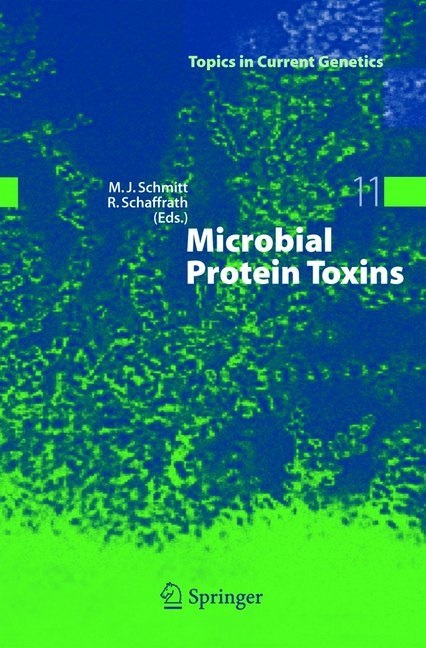Mehr lesen
Since the initial establishment of Robert Koch's postulates in the nineteenth century, microbial protein toxins have been recognized as a major factor of bacterial and fungal virulence. An increasing number of proteins produced and secreted by various bacteria, yeasts and plants are extremely toxic and most of them developed remarkably "intelligent" strategies to enter, to penetrate and to finally kill a eukaryotic target cell by modifying or blocking essential cellular components.
This book describes the strategies employed by protein toxins to render their pro- and eukaryotic producers a selective growth advantage over competitors. In providing an up-to-date overview on the mode of protein toxin actions, it accommodates biomedically and biologically relevant toxin model systems. As a result, it significantly broadens our perspective on biochemical architecture and molecular ploy behind the lethal principles of pro- and eukaryotic toxins.
Inhaltsverzeichnis
Diphtheria Toxin, Diphtheria-related Fusion Protein Toxins, and the Molecular Mechanism of Their Action Against Eukaryotic Cells.- Anthrax Toxin and Genetic Aspects Regulating its Expression.- Shiga Toxins and Their Mechanisms of Cell Entry.- Cholera Toxin: Mechanisms of Entry Into Host Cells.- ExoU: A Cytotoxin Delivered by the Type III Secretion System of Pseudomonas aeruginosa.- Staphylococcal Alpha-toxin.- S. cerevisiae K28 Toxin - a Secreted Virus Toxin of the A/B Family ofProtein Toxins.- Kluyveromyces lactis Zymocin and Other Plasmid-encoded Yeast Killer Toxins.- The Ustilago maydis Killer Toxins.- Zygocin - a Monomeric Protein Toxin Secreted by Virus-infected Zygosaccharomyces bailii.- Acidophilic Structure and Killing Mechanism of the Pichia farinosa Killer Toxin SMKT.- Ricin: Structure, Synthesis, and Mode of Action.
Zusammenfassung
Since the initial establishment of Robert Koch’s postulates in the nineteenth century, microbial protein toxins have been recognized as a major factor of bacterial and fungal virulence. An increasing number of proteins produced and secreted by various bacteria, yeasts and plants are extremely toxic and most of them developed remarkably "intelligent" strategies to enter, to penetrate and to finally kill a eukaryotic target cell by modifying or blocking essential cellular components.
This book describes the strategies employed by protein toxins to render their pro- and eukaryotic producers a selective growth advantage over competitors. In providing an up-to-date overview on the mode of protein toxin actions, it accommodates biomedically and biologically relevant toxin model systems. As a result, it significantly broadens our perspective on biochemical architecture and molecular ploy behind the lethal principles of pro- and eukaryotic toxins.

